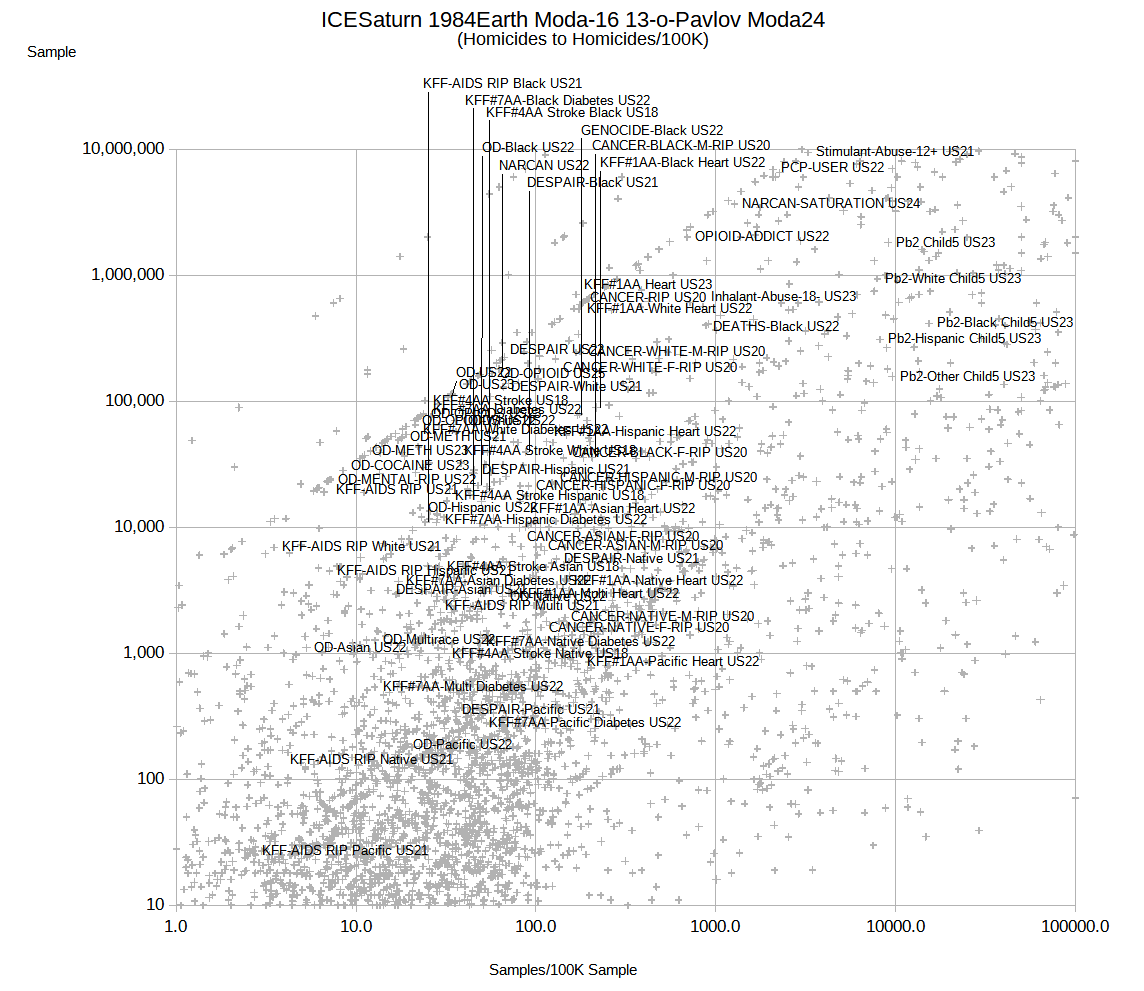
Zinger Key Points
- The U.S. overdose crisis, claiming over 100,000 lives annually, received minimal attention during the presidential campaign.
- Emergent BioSolutions, maker of Narcan, sees stock surge amid increased demand with major organizations pledging to provide it nationwide.
Despite claiming over 100,000 lives annually, the U.S. overdose crisis received minimal attention during the recent presidential campaign, which concluded with Donald Trump’s victory. This oversight comes as overdose deaths continue to rise among Black and Indigenous Americans, revealing a growing racial disparity in the epidemic.
Rising Racial Disparities In Overdose Deaths
According to a Stateline analysis of federal data covered by Tim Henderson, overdose deaths among white Americans have declined, but deaths among people of color have increased. In 2023, Black and Native Americans experienced overdose death rates of 49.5 and 39.8 per 100,000 people, respectively, surpassing white rates. Health experts attribute this to a lack of targeted resources and funding in nonwhite communities.
“It is our contention that Black harm reduction isn't about drug use, it's about the harms of not being a white person in this country,” said Tracie Gardner, co-director of the National Black Harm Reduction Network. Communities of color often struggle to access harm reduction services, which are predominantly designed and led by white institutions.
Minimal Campaign Attention
Throughout the campaign, Trump and his opponent, Vice President Kamala Harris, focused largely on border security and drug enforcement rather than harm reduction strategies.
As a recent Fitler Mag article notes, Trump’s official platform emphasized escalating the drug war, proposing measures like deploying the U.S. Navy to impose a “full Fentanyl Blockade” and cracking down on cartels. Harris, while mentioning a commitment to ending the opioid epidemic, highlighted her background in prosecutions and supported increased border security measures.
Public health experts criticize this approach for failing to address the root causes of the crisis. Kassandra Frederique, executive director of the Drug Policy Alliance, noted that efforts have “ultimately fallen short of the scale and magnitude this crisis demands.”
Rising Demand For Narcan
Amid this policy void, demand for naloxone—commonly known by the brand name Narcan—is increasing sharply. Over 250 companies, universities and organizations have pledged to provide free doses of the overdose-reversing medication, according to NPR. Major corporations like Amazon AMZN, United Airlines UAL and the National Hockey League are participating in this national effort to curb fatalities.
White House officials noted that the wider availability of naloxone has contributed to a recent 10% decline in overall overdose deaths. “From airlines to classrooms, from offices to sports arenas, we are grateful to have hundreds of voluntary commitments from organizations and businesses across the country,” stated Dr. Rahul Gupta, the Biden administration’s drug czar, prior to the election.
However, experts caution that fatalities remain high, especially among marginalized communities.
Emergent BioSolutions Sees Stock Surge
Meanwhile, Emergent BioSolutions Inc. EBS, the manufacturer of Narcan, has seen its stock perform strongly in 2024. With a diverse portfolio addressing public health threats, the company’s financial recovery and strategic government contracts position it favorably in the market, noted Insider Monkey. EBS reported significant revenue growth and reduced debt, contributing to a year-to-date share price gain of over 280%.
Read Also: FDA Approves Over The Counter Sale Of Opioid Reversal Drug Narcan
Analysts attribute part of Emergent’s success to the increasing recognition of naloxone’s importance in combating the overdose crisis. As more organizations stock Narcan, the company’s role becomes ever more critical.
Barriers To Harm Reduction Access Persist
As the new administration takes office, the neglect of the overdose crisis in election debates raises questions about the future of harm reduction policies under the new administration. Advocates urge the government to prioritize effective strategies over punitive measures.
Read Next:

Comments